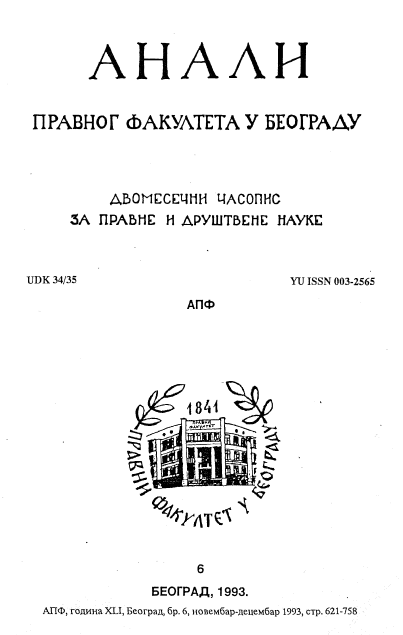ПРОБЛЕМИ ДЕФИНИСАЊА МЕЂУНАРОДНИХ ОДНОСА И КУЛТУРНО ЈЕДИНСТВО МЕЂУНАРОДНЕ ЗАЈЕДНИЦЕ
THE PROBLEMS OF DEFINITION OF INTERNATIONAL RELATIONS AND CULTURAL UNITY OF INTERNATIONAL COMMUNITY
Author(s): Predrag VukasovićSubject(s): Geopolitics
Published by: Правни факултет Универзитета у Београду
Keywords: International relations; Definition; International community; Cultural unity
Summary/Abstract: The subject matter of this article arc several definitions of international relations offered in course of the fifties, sixties and seventies of the present century by authors of different theoretical backgrounds. All these definitions are based primarily on contemporary situation, while neglecting historical experience of earlier civilizations. This is due to various factors but mostly to disregarding cultural-historical elements influencing the quality of international relations, but also in some instances, their very essence. In such a way, the notion of international community appears as a correlative element of the entire cultural-historical situation of a given epoch. Especially significant is the fundamental difference existing between international relations constituted within the specific civilization as a widest aggregate of cultural-historical phenomena, and the inter-civilizational relations resting on entirely different presumptions. While trying to point at theoretical justification and analytical value of that distinction, the author treats modern international community as a political expression of economic and cultural unification of all parts of the world, and not as a purely political creation of a group of state. Consequently, the language of diplomatic and political practice is permeated by clear ideological traces of that process. Throughout the history, the notion of international community has been present as a political and cultural entity in, more or less, every civilization with polycentrist distribution of political power: Greek city-states of classical epoch, medieval res publica Christiana, political systems of early modern Europe, etc. The role is emphasized in the conclusions of cultural-historical factors in shaping international public opinion.
Journal: Анали Правног факултета у Београду
- Issue Year: 41/1993
- Issue No: 6
- Page Range: 640-659
- Page Count: 20
- Language: Serbian

